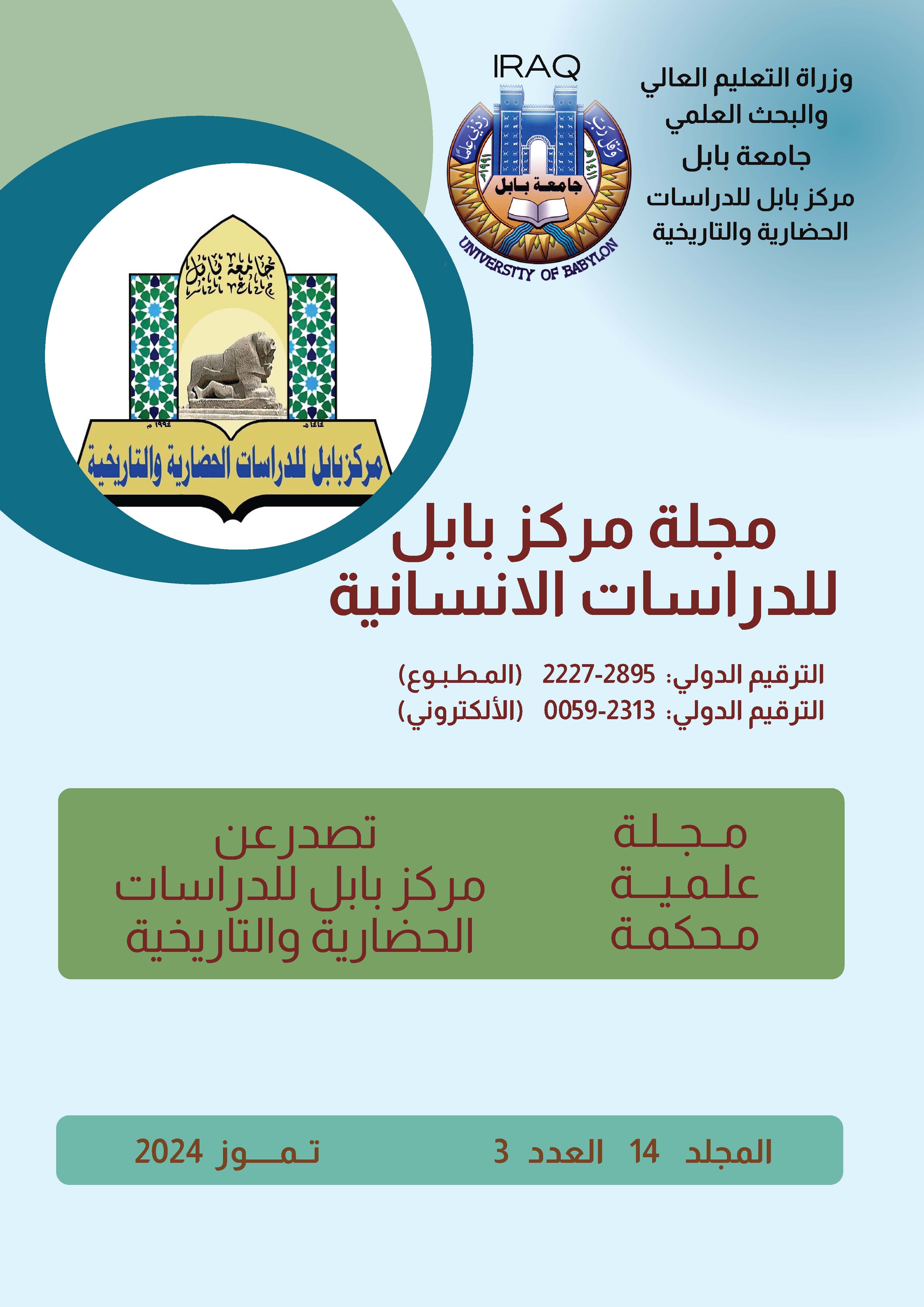Contrast and break the expectation horizon
Keywords:
Reading and receiving, Contrast, Expectation horizon, Yaos, Iser, Questioning, Delusion, Usage, Purification.Abstract
In this research, I dealt with contrasting and breaking the horizon of expectation, and it seemed to me, in light of the Qur’anic and poetic evidence that I encountered, that this term branches into more than one section and overlaps with other critical functions.
I divided the research into four sections. The first section entitled (Doubt), while the second section entitled (Usage), the third section entitled (Illusion), and the last section entitled (Nomination). Then the research ends its journey with a conclusion that includes the most important results. The study reached, including:
First: ancient grammarians did not define the concept of variation, so it was often talked about as a form of dissent and departure from the origin or analogy. However, the moderns were more precise in defining the term.
Second: The term appears under different names, the most important of which are: deviation, expansion, displacement, departure from what is apparent, violation...
Third: Variation is considered the change in which Arabic deviates from its rules and basics upon which grammarians have unanimously agreed, whether this relates to the movement of parsing, construction, number and its number, or definition and indefiniteness.
The contrast represents a break in the horizon of expectation, because rhetorical art involves two meanings, one is close, and the other is far away, as the Qur’anic witness has made clear, as well as the poetic witness of a deep, significant meaning that brings the reader to the true meaning. The aesthetics of contrast inherent in skepticism is based on breaking the horizon. Skepticism is based on the illusion of truth. The use occurs differently in the pronunciation, as it is used in two meanings and you want them together, and illusion represents a break from the familiar and a shock to the reader, and it occurs in tangible and intangible matters. The nomination was not something innate or spontaneous, but rather something intentional on the part of the writer in order to encourage the reader to interact with the literary work.







